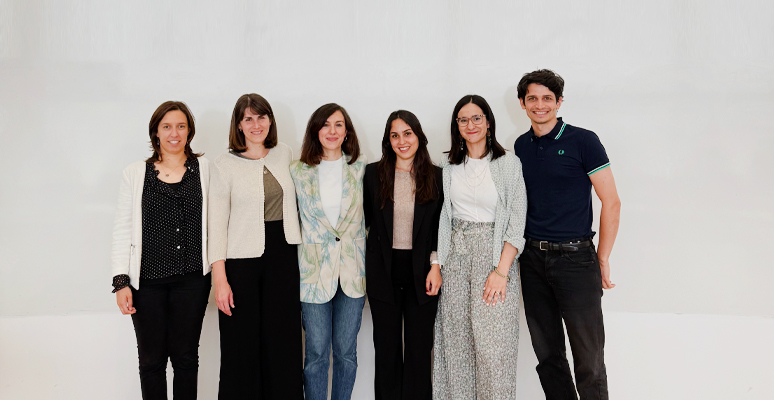
- Start date
- Duration
- Format
- Language
- 1 Dec 2025
- 3 days
- Class
- English
Doing a comprehensive strategic exercise as the executive leadership team of a hospital to test and strengthen managerial and organizational skills.
SDA Bocconi’s LIFT Lab held its annual event alongside CERGAS to showcase the groundbreaking research initiatives it has conducted this year. The event, entitled Opportunities for Healthy Aging: From Digital Technologies to New Health Service Models, looked at the role of technologies like Intelligent Assistive Tech and Telemedicine in the healthcare of aging populations.
The event offered an engaging and inspiring opportunity to explore groundbreaking innovations in healthcare, to learn about the future work of LIFT lab biotech and life sciences research center, and interact with the lab’s researchers. After a welcome from SDA Bocconi Dean Stefano Caselli, the LIFT Lab Director Anna Gatti presented some of the lab’s work from the past year, such as applications of medtech like autonomous robotic surgery, wearable medical devices, and AR/VR-based treatment, as well as future directions.
“There is evidence that this decade will be a decade in which the convergence of digital and life sciences leads to innovations not only in technology but also in business models,” Gatti said, speaking about the possibilities that lie ahead.
She was followed by Patrizio Armeni, Associate Professor of Practice at SDA Bocconi, LIFT Director and CERGAS Health Economics Coordinator, who presented a closer look at the latest digital technologies, and more specifically, how they promote healthy aging.
“Our job has been to try to understand how and which of these technologies are actually making their way to support a healthy aging strategy. One of the goals we have as a lab is to facilitate the convergence of problems and solutions because often the process of scientific and technological innovation often does not start with needs but follows the trajectory of the evolution of scientific knowledge and technological innovation, with the risk of bringing advanced technologies to the market that are looking for problems to solve,” he said.
As a lab, they identified two macro-groups of digital technologies for healthy aging: intelligent assistive technology and remote monitoring, that offer promising solutions that can address the reality of patients and healthcare workers. “The benefits of these technologies,” he said, “include the possibility of patients staying healthy and monitoring themselves at home continuously, also favoring more widespread data collection, whereas the challenges are tied to the lack of clinical and economic evidence, insufficient knowledge transfer between innovators and users (including doctors), and the still widespread digital illiteracy and risk of not valuing the human relationship due to excessive technological substitution.”
CERGAS, the center for research on health and social care management, was also present and shared its perspective on to what extent and how digital technologies and telemedicine in particular are entering our healthcare system in support of health aging. CERGAS Director and Bocconi University Associate Professor Amelia Compagni showed how telemedicine has been identified at the national level and within the PNRR (Mission 6) as the technology of choice to support the elderly at home in chronic disease management.
"Our elderly are not just many, but also unhealthy. About 60 percent of the over-65s have at least one chronic disease. Telemedicine is one of the proposed solutions to reach the target of 10 percent of over-65s taken care of by the health service at home," she said. She also cited projects conducted by CERGAS that have provided a better understanding of how these solutions are implemented in the real world and what factors determine their success. Such as in the case of a multichannel service for rheumatology patients at Niguarda Hospital in Milan, which can provide telemonitoring, personalized drug delivery to the home and collect outcome data from the patient's perspective. "Telemedicine," she added, "is a type of health care that can be applied to the entire patient pathway, with great flexibility, but it does not replace traditional health care. In the future we will see more and more hybrid forms of service, usable through various channels, and patients together with professionals will be able to choose what is closest to their preferences and appropriate for their health conditions."
The event closed with a roundtable discussion on Real-world Experiences with Implementation of Digital Solutions moderated by Leonardo de Rossi, LIFT Lab Researcher. The panel included Mario Costantini, CEO of Neva Corporate Venture Capital of Intesa Sanpaolo; Barbara Meda, Marketing Manager at Ab Medica; Maria Cristina Ferradini, Managing Director of Fondazione Amplifon; and Patrizia Rocca, Supervisor of the Telemedicine Unit at ASST Bergamo Est hospital. They also answered questions from the attendees about data privacy, digital literacy among elderly people and cross-cultural differences in the implementation of technologies.
At the event, Anna Gatti announced that LIFT Lab will become CERGAS' newly formed Digital Transformation Hub.
SDA Bocconi School of Management

Doing a comprehensive strategic exercise as the executive leadership team of a hospital to test and strengthen managerial and organizational skills.

Per aiutarti a trovare le soluzioni adeguate in un’ottica di lungo periodo nella gestione del punto di vendita di prodotti e servizi per la salute.

The Program aims to provide basic knowledge of health technology assessment and the main techniques of economic evaluation in health.

